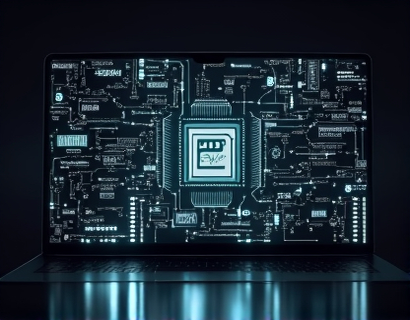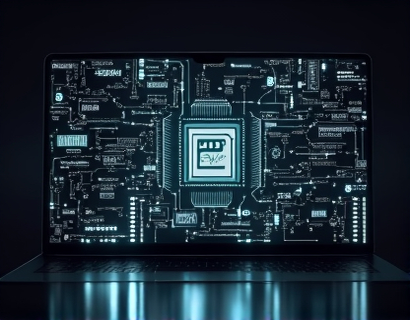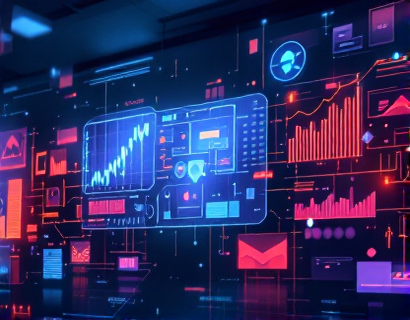Maximizing Aquatic Business Efficiency with Specialized Software for Pools and Water Sports Facilities
In the competitive landscape of pools, aquatic centers, and water sports facilities, efficiency is key to success. The operational complexities and the need for high customer satisfaction demand a robust and specialized approach to managing day-to-day activities. Specialized software designed for the aquatics industry offers a comprehensive solution to streamline operations, enhance customer engagement, and optimize resource management. This article delves into the benefits and functionalities of such software, providing insights for aquatics business owners and managers looking to boost productivity and drive growth.
Streamlining Operations
One of the primary advantages of implementing specialized software in aquatics businesses is the significant improvement in operational efficiency. These systems are designed to automate and simplify various tasks, reducing manual errors and freeing up staff to focus on more critical aspects of the business. For instance, automated scheduling tools can manage swim lesson bookings, maintenance schedules, and staff shifts with minimal input from staff, ensuring that everything runs smoothly and according to plan.
In addition, inventory management features help track and manage supplies such as chemicals, equipment, and merchandise. This ensures that stock levels are always optimal, reducing waste and unnecessary expenses. The software can send alerts when items need to be reordered, preventing stockouts and overstock situations. This level of control over inventory not only saves time but also ensures that the facility is well-equipped to meet customer needs.
Enhancing Customer Engagement
Customer satisfaction is crucial for the success of any aquatics business. Specialized software can significantly enhance customer engagement through various channels. Online booking and payment systems allow customers to easily schedule lessons, rent equipment, or purchase memberships from the comfort of their homes. This convenience not only improves the customer experience but also increases bookings and revenue.
Moreover, customer relationship management (CRM) tools integrated into the software help businesses maintain detailed records of customer interactions, preferences, and payment histories. This data can be used to personalize communications, offer targeted promotions, and improve overall customer service. For example, sending personalized emails with special offers based on a customer's past bookings can increase loyalty and repeat business.
Optimizing Resource Management
Effective resource management is essential for maintaining high operational standards while controlling costs. Specialized software provides powerful tools to optimize the use of resources such as staff, equipment, and facilities. Workforce management features enable managers to track employee hours, monitor attendance, and ensure compliance with labor laws. This helps in creating balanced schedules that meet operational needs without overworking staff.
Equipment maintenance is another critical area where software can add significant value. Predictive maintenance tools can monitor the condition of pool equipment and alert staff when maintenance is required, preventing breakdowns and extending the lifespan of the equipment. This proactive approach reduces downtime and maintenance costs, ensuring that the facility operates efficiently at all times.
Data Analytics and Reporting
One of the most powerful aspects of specialized aquatics software is its data analytics and reporting capabilities. These features provide valuable insights into various aspects of the business, from customer behavior to operational performance. Managers can access detailed reports on revenue trends, customer demographics, and operational metrics, enabling data-driven decision-making.
For example, analyzing attendance patterns can help identify peak and off-peak times, allowing for better staffing and resource allocation. Financial reports can highlight areas where costs can be reduced or revenue increased. These insights are crucial for strategic planning and long-term growth.
Integration and Compatibility
Modern specialized software is designed to integrate seamlessly with existing systems and third-party applications. This ensures a smooth transition and minimizes disruption to ongoing operations. Compatibility with popular calendar applications, payment gateways, and CRM systems enhances the software's versatility and functionality. For instance, integrating with a popular calendar app can simplify the process of scheduling and rescheduling appointments, while seamless payment integration ensures a smooth checkout process for customers.
Furthermore, cloud-based solutions offer the advantage of accessibility from anywhere, allowing managers and staff to access important data and perform tasks on the go. This flexibility is particularly beneficial for aquatics businesses that may have multiple locations or staff working off-site.
Security and Compliance
Data security and compliance with industry regulations are paramount in the aquatics sector. Specialized software providers prioritize these aspects, implementing robust security measures to protect sensitive customer information. Encryption, secure login protocols, and regular security audits ensure that data is safeguarded against unauthorized access and breaches.
Compliance with regulations such as GDPR, HIPAA, and other local data protection laws is also a key feature of these systems. This not only protects the business from potential legal issues but also builds trust with customers, knowing that their information is handled with the utmost care.
Case Studies and Success Stories
Several aquatics businesses have successfully implemented specialized software, resulting in significant improvements in efficiency and customer satisfaction. For example, a large aquatic center in a bustling city reported a 30% reduction in operational costs within the first year of using the software. The automated scheduling and inventory management features allowed the center to reduce staff workload and minimize waste, leading to substantial cost savings.
Another pool chain implemented a comprehensive CRM system, which resulted in a 25% increase in customer retention rates. The ability to personalize communications and offer targeted promotions based on customer data helped build stronger relationships with patrons, encouraging repeat visits and referrals.
Conclusion
Specialized software for pools, aquatic centers, and water sports facilities offers a multitude of benefits that can transform the way these businesses operate. From streamlining operations and enhancing customer engagement to optimizing resource management and providing valuable data insights, the right software can significantly boost productivity and drive growth. As the aquatics industry continues to evolve, embracing advanced technological solutions will be essential for staying competitive and meeting the ever-changing needs of customers.









































